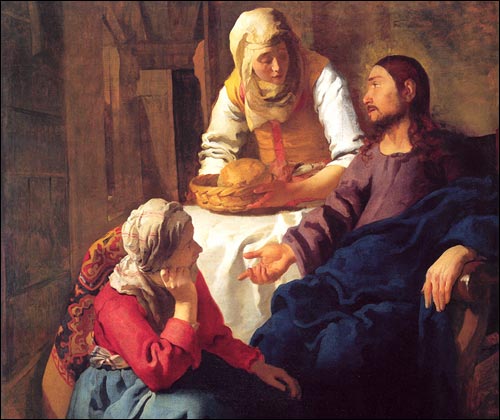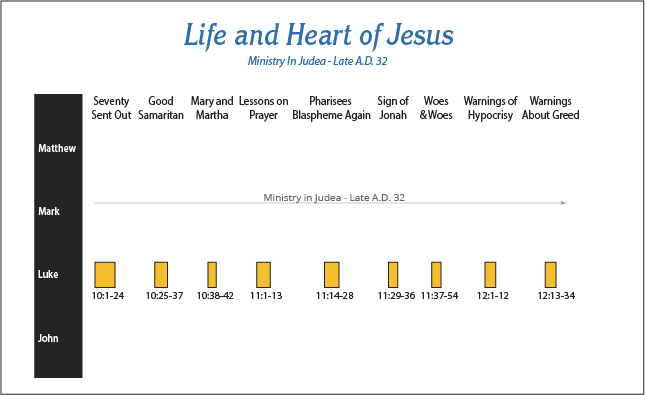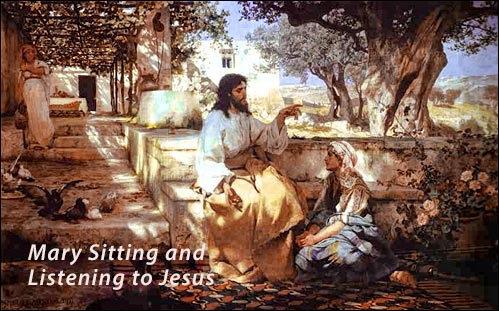
When you think about priorities, what is at the top of your list? Are your decisions driven by what seems best? Do financial needs determine what is important? Usually, the urgent is what comes to the top of the list. It is the urgent that controls our decisions. Is that true for you? Do you ignore the urgent or do you have a priority list? Do you just wake up in the morning, have some coffee or your favorite morning beverage and do what you feel like doing? Some people stay in bed in the early morning hours, get up in the late morning and then do whatever they want. Other people have to leave the home and go to work to earn money for the day. Some people wake up to an alarm clock, race to get a shower or bath, comb their hair and brush their teeth. Then they get breakfast if they have breakfast, and get dressed. Next, they grab their purse, wallet and car keys and rush to the car to get to work. Then they do what their supervisor wants during the workday, rush home, eat dinner, and go to bed. The next day they repeat the cycle. Priorities? Who has time to think about priorities? Our study is from Luke 10:38-42 and it is about priorities.
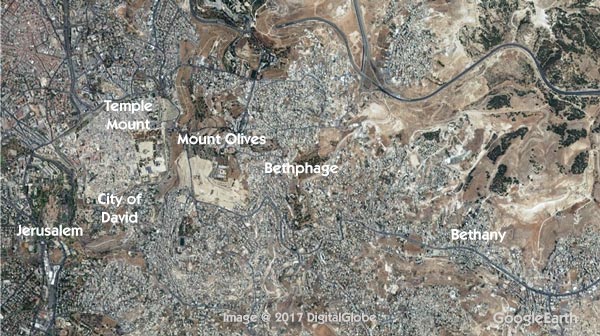
Travel to Bethany
Jesus has been in Jerusalem for the Feast of Booths (John 7:2) and Luke 10:38 tells us that He left and entered a village called Bethany.
Now as they were traveling along, He entered a village; and a woman named Martha welcomed Him into her home. Luke 10:38 (NASB)
John 11:18 says that Bethany was about two miles (2.4 km) east of Jerusalem. The city will be visited by Jesus later in John 11:1 and it will be the city He leaves for the Triumphal Entry.
When Jesus arrived in the city, a woman named Martha invited Him and His disciples into her home. It is important to note that we are told “they were traveling along.” Jesus was not by Himself. We are told that “they” were traveling. A group of them were traveling together. This reveals that Martha was an incredible hostess. She had invited a crowd into her home. One wonders how large her home was, but we are not told. The homes in Jesus’ day were typically one or two floors. People would sleep on the upper floor and entertain on the lower floor.
It was typical in that day for people to invite travelers into their home, since inns or hotels were rare. Inns did exist as revealed in Luke 2:7 where we are told that Joseph could not put Mary in the inn. Also in the last study, we were told that the good Samaritan put the severely beaten man into an inn (Luke 10:34). Either there was no inn in the village or Jesus already knew Martha. But the verse seems to imply that they did not know one another when it says, “a woman.”
Mary Is Sitting At Jesus’ Feet
The next verse tells us that Martha had a sister named Mary, who was seated at Jesus’ feet, listening to Him.
She had a sister called Mary, who was seated at the Lord’s feet, listening to His word. Luke 10:39 (NASB)
It is surprising that the Holy Spirit does not tell us that Jesus and the disciples approached the home or describe the greetings between Martha and the men. The Holy Spirit does not describe Martha’s invitation to enter the home, where the men are seated or standing or how long they have been there. We are not told if they had a meal or had spent the night already. We do not know if Martha introduced Mary to the men. We are not given the age of Martha or Mary. We do not know if Mary is older or younger.
Instead, like a movie camera, the Holy Spirit zooms in on Mary who is sitting at Jesus’ feet. Where did she come from? What was she doing before she sat down at His feet? What is the topic being discussed? Was Jesus talking about politics, heaven, the kingdom, the latest healing or signs and wonders, or how to have eternal life?
Stop to think about what the Holy Spirit did. The Spirit wants us to see Mary sitting at Jesus’ feet. That is the most important picture for us to see. Martha is not important. The disciples are not more important. The room, the food, the decorations on the wall and not even the topic of conversation is more important than that snapshot of Mary sitting at Jesus’ feet. The Holy Spirit’s camera has blurred the background and everything else. He wants us to see only Mary sitting at Jesus’ feet. What are you doing right now? Are you looking at Mary sitting at Jesus’ feet?
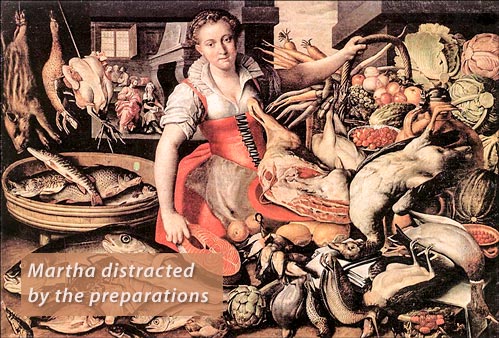
Martha Was Distracted
Then all of a sudden the Holy Spirit’s camera zooms in on Martha. We are told that Martha has been distracted.
But Martha was distracted with all her preparations; and she came up to Him and said, “Lord, do You not care that my sister has left me to do all the serving alone? Then tell her to help me.” Luke 10:40 (NASB)
The first thing to notice is that Martha was preparing for a meal. The root Greek word for preparations is diakonia. The word refers to serving “food and drink to those eating.”[1] We do not know which meal she was preparing: breakfast, lunch or dinner. Most women who are preparing for a crowd of guests are very busy trying to bring everything together at the last minute. In Jesus’ day, they did not have a refrigerator. Therefore, milk products would have to be made at the last minute so that they would not spoil. They did not have electric or natural gas cooktops or ovens. They did not have toasters or mixmasters. She must have been extremely busy trying to prepare for perhaps as many as thirteen guests plus whoever was already in the home at that time.
John 11:1-2 tells us that three people lived in the home: Martha, Mary and Lazarus. It appears from John 11 that Martha was the one who was preoccupied with the details. We are also left with the impression that she was a very busy woman. These are great qualities. She was not lazy. She was the perfect person for preparing such a large meal.
Wrong Priorities Leads to Criticism
But we are told that she missed one very important priority. She was distracted. The root Greek word that is translated as distracted is perispao. The word means “to be so overburdened by various distractions as to be worried and anxious.”[2] The Greek verb is in the imperfect tense. That means she was in a state of constant distraction. She never stopped to listen to Jesus.
Martha realized there were so many preparations to be performed that she felt overwhelmed to the point that she let them distract her. She was extremely focused on all of the details required to prepare the meal. The Holy Spirit wants us to see Martha’s faithfulness but also her sense of urgency to get some food to her group of guests. She was distracted and probably racing. She had confused her priorities. As a result, she became critical of Jesus and her sister Mary. Wrong priorities usually result in sin and Martha has become critical of her sister.
We can imagine what she was thinking. Mary should be helping her prepare the food for all the people in her home. “I am left all alone to prepare all of this food. No one has asked if they can help me. No one cares about me. They are just out there sitting and talking. My sister never helps! She is out there just sitting and listening to Jesus. I need help! Look at Jesus. He does not care about me. He does not care that I am working to feed Him. He should send Mary to help me.”
Martha Criticizes Jesus
We are told that Martha speaks directly to Jesus and challenges Him. Her opening words are, “Lord, do You not care . . .” Her words reveal that she has taken this personally. She is really asking Jesus, “Do you appreciate and love me?”
This is a very common response. We become upset, maybe angry, and then we blame God. We fail to see our own error and accuse God of not caring. But Martha’s next words reveal that her real complaint is against her sister, “do you not care that my sister has left me to do all the serving alone? Then tell her to help me.” The Greek word for “left” is kataleipo. It means to “leave, leave behind.”[3] That is, Martha claimed that Mary had left her to do all the work. But the word was “alone.” She felt alone! The task was so great and so important and her priorities were so wrong that she became critical of her sister who was sitting and listening to Jesus. She must have been angry for a while. She had enough time to start blaming Jesus.
The fact that she blamed Jesus reveals that they must have been friends and that is why Jesus stopped at her home. Or, she is one very bold woman. She confronted Jesus! She is thinking, “Doesn’t He care?” Then her words reveal her thoughts. Jesus tells us,
But the things that proceed out of the mouth come from the heart, and those defile the man. For out of the heart come evil thoughts, murders, adulteries, fornications, thefts, false witness, slanders. Matthew 15:18-19 (NASB)
We can imagine her thinking, “This task is too important and these men need to eat. Enough of this talking. We can do that later over the meal. What I am doing is more important. Make her help me! Make her join me in the food preparations. ” Ouch! Wrong priorities lead to wrong conclusions which then lead to other sins!
The Lord Rebukes Martha
Wrong priorities will eventually lead to open rebuke by a godly man or woman or by the Lord Himself. That is what happened to Martha.
But the Lord answered and said to her, “Martha, Martha, you are worried and bothered about so many things; but only one thing is necessary, for Mary has chosen the good part, which shall not be taken away from her.” Luke 10:41-42 (NASB)
We are told that Jesus understood her pattern of life was to be worried and emotional about so many things. The root Greek word, merimnao, that is translated as worried has the meaning of “being anxious, worried, and care.”[4] The Greek word for “bothered” is turbazo and it has the sense of being in a tumult.[5] If we take these words together, we discover that Martha was a woman who had a great quality. She was not a lazy woman. She was serious about her tasks, but she became so intense that she often worried and became emotional in the process. This is such a common problem. We worry and become anxious over so many things.
In the Sermon on the Mount (Matthew 6:25-34), Jesus uses the Greek word merimano five times in describing human behavior. He says that we worry about what we will eat, drink and wear, rather than trusting that God cares for us! We become anxious because we really do not believe that He loves and cares for us. Martha was not trusting God that the men would be okay if the food was delayed. She had the wrong priorities.
A. T. Robertson makes an interesting observation when he states,
Jesus seems to say to Martha that only one dish was really necessary for the meal instead of the “many” about which she was so anxious.[6]
Now we cannot be positive that Robertson is accurate; but if Martha was trying to prepare too many dishes, then Jesus’ statement has even more power. There is only one “dish” that is necessary to prepare and that is to come, sit and listen to the Word of God!
One Good Thing
But even if A. T. Robertson is wrong, the message is still the same. There is only one thing about which Martha should have been concerned. She should have been eager to quietly sit and hear the Word of God. Martha had missed the one good thing. Notice Jesus’ words, “Only one thing is necessary!” Only one thing needs to be done! One thing is required and it was not meal preparation. The Greek word for “one” means one as opposed to two or more. The Greek word for “necessary” is chreia and it literally means “need.” That is, there is only “one need.” It is not food but the Word of God.
Martha thought she was doing the most important thing – providing for the needs of her guests. We can be confident that she was doing a great job preparing many great tasting dishes for her guests. They were probably hungry and maybe tired. I suspect that she thought that they would verbally express great appreciation. As she prepared, she thought about her lazy sister doing nothing but sitting and listening – just wasting time!
Jesus’ comment must have shocked Martha and maybe even made her mad when He said, “Mary has chosen the good part.” The Greek word for good is agathos. It means ethically good. The word does not mean that which is beautiful, but that which is morally good. Mary chose that which was morally superior. Listening to Jesus teach was superior to preparing food and drink for thirsty and hungry guests.
Conclusion
Then Jesus said it would “not be taken away from her.” Martha would not get any help. We can be confident that Martha felt rebuked and unhappy. Maybe she returned to preparing the meal and completed the task anyway. Or, did she sit and listen to Jesus too? We are not told what happened. I am glad that we are not told what happened because then we are left with the question: what is the one thing that is the most important to you? Mary chose the best part! What will you choose?
References
1. Swanson, J. Dictionary of Biblical Languages with Semantic Domains: Greek (New Testament) (electronic ed.). Oak Harbor: Logos Research Systems, Inc. 1997.2. Louw & Nida. Greek-English lexicon of the New Testament:. 1996, 2nd edition., Vol. 1, p. 313. United Bible Societies.
3. Colin and Brown. The New International Dictionary of New Testament Theology. Regency Reference Library. 1971. vol. 3. p. 247-254.
4. Goetzmann, J. Care, Anxiety. L. Coenen, E. Beyreuther, & H. Bietenhard (Eds.), New International Dictionary of New Testament Theology. Zondervan Publishing House. 1986. vol. 1, p. 276.
5. Robertson, A. T. Word Pictures in the New Testament (Luke 10:41). Broadman Press. 1933. vol. , p. 156.
6. Ibid. p. 15-157.
